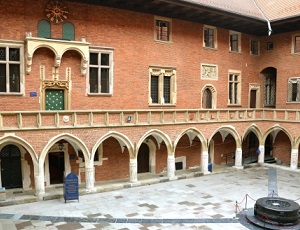
The Institute of Intercultural Studies of the JU Faculty of International and Political Studies would like to invite you to attend an international conference entitled 'Freedom in culture'. The aim of the conference is to reflect on the limits of freedom in contemporary culture(s). The concept of freedom applies to many aspects of the public and individual life, among others: discourse, public space, politics and religion.
Freedom of speech is undeniably an important issue in contemporary culture. The modern mass media, including social media, allow for transmitting information quicker and to a broader audience than ever before, which makes the communication process faster, albeit to some extent poorer in quality (especially in respect of credibility). Thus, unlimited freedom of speech can be questioned here, i.e. in cases when human dignity is harmed by slanderous narratives published online or in traditional media.
Freedom in the public space can be identified by looking at the correspondence between architecture and urbanisation processes and the individual and collective human behaviours. The spatial arrangement of cities influencing their inhabitants’ behaviour plays an important role in shaping post-modern societies. Public space can unite, divide, even isolate people, offer them safety and comfort or bring insecurity and uncertainty. Therefore, the concept of public space planning and its freedom constitutes a crucial issue not only for urbanists, but also for those who analyse this concept from the perspective of esthetics, politics and economy.
Freedom in politics is based on the relationship of an individual and the state. On the one hand, we may discuss civil freedom understood as a civil right to participate freely in public life. On the other hand, we may wonder to what extent the individual freedom stays beyond the state influence. Contemporary post-modern societies constitute a space where these two approaches clash. Contemporary liberal democracies care more about protecting the so called civil liberties rather than individual ownership rights. Why? This is one of the numerous questions we would like to address.
Religious freedom is influenced not only by religion itself, but also by politics and social order. Religion has not disappeared, as it was proclaimed by some post-Enlightenment philosophers and scholars; it is still present, in some cases playing a fundamental role. The power of religion lies in its creative and destructive potential. Religious thought permeating throughout societies is mixed with human universalism, individual rights and relativism of community rights (e.g. ethnic and racial groups, nations, languages etc.). The problem addressed in this context applies to religious freedom executed in various social, political and legal orders, which is located in a broader cultural dimension.
More information can be found on the conference website.

